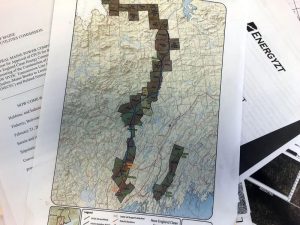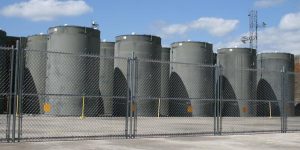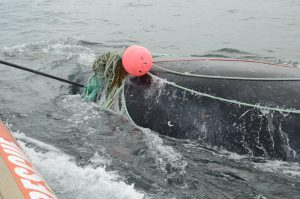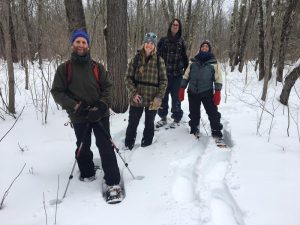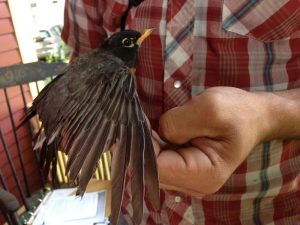Stories
Bringing Hydro Power From Canada To Massachusetts: Comparing Northern Pass And New England Clean Energy Connect
We’re going to take you on a journey. It starts in frigid Québec, where a gigantic, decades-old project that dammed rivers and forced native people off their land and has become a source of provincial pride, and a lot of power. Power-hungry Massachusetts saw Hydro-Québec’s big dams as a zero-carbon answer to their prayers.
Read MoreMills, 2 Environmental Groups Back CMP’s $1 Billion Western Maine Transmission Project
Gov. Janet Mills and two environmental groups are signing on to Central Maine Power’s bid to build a controversial new transmission line through western Maine’s forests. That significantly broadens the coalition of interests supporting the project, but the deal is also drawing fire from other environmental groups, grassroots opponents and some renewable energy developers in Maine.
Read MoreWhen you think about renewable energy, does a nuclear power plant come to mind? Probably not. But in a roundabout way, Vermont utilities are using nuclear energy to meet the state’s renewable energy standards.
Read MoreCan Feces Save A Species? Boston Has The World’s Largest Collection Of Right Whale Poop
The Marine Stress and Ocean Health Lab at the New England Aquarium looks like your typical laboratory. It’s full of humming and whirring machines, beakers and test tubes, digital scales and centrifuges.
Read MoreA consortium of Atlantic states fisheries managers is calling for broad changes to the gear lobstermen use, in an effort to reduce risks posed to the endangered North Atlantic right whale and to ward off potential federal action that could be even more challenging for the industry.
Read MoreAs Feds Weaken Wetlands Rules, Locals Eye Greater Protections For Otter Creek Swamps
The state’s largest wetlands area stretches 15 miles along the Otter Creek in Addison and Rutland counties. Local groups have started talking to the state about how to provide greater protection for the Otter Creek wetlands, as the Trump administration seeks to roll back national wetland protection rules.
Read MoreWhat Are The Secrets Of Connecticut’s Bobcats?
Inside a lab in northwest Connecticut is a bobcat. Its bright eyes and black-tufted ears are separated from me only by the metal grill of a large carrier. She’s sleepy, but waking up.
Read MoreThe Challenges Of Going 100 Percent Renewable
In some parts of New England, towns are committing to transition to 100 percent renewable energy. Burlington, Vermont was the first city in the United States to get 100 percent of its energy from renewable sources. Others are following suit, including Hanover, New Hampshire. And there’s a useful tool for places looking to make the transition. “The Solutions Project” has a “vision” for each state in the country for what a switch to 100 percent renewables could look like.
Read MoreFederal researchers in western Massachusetts study ways to protect migrating fish, backyard birds and urban trees. The government shutdown is keeping them home and away from their research.
Read MoreAndover Hall is the heart — and soul — of Harvard Divinity School.
Read More
